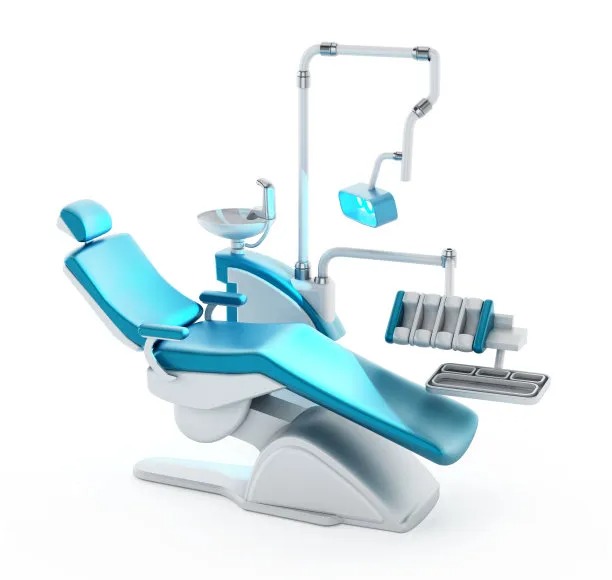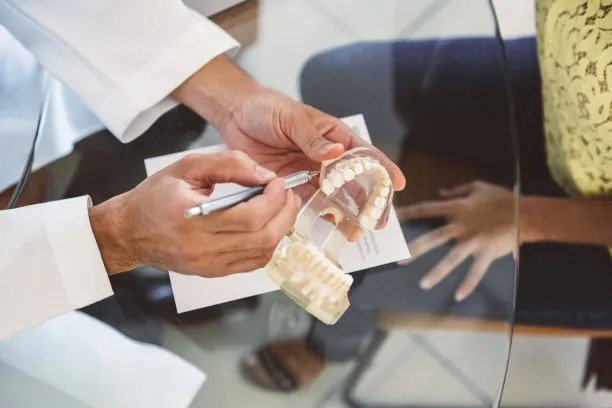Summary: Receiving a dental filling is an essential procedure for maintaining optimal oral health, particularly after experiencing tooth decay. However, specific guidelines should be followed before and after the procedure to ensure the best outcomes. This article covers important aspects, including preparing for the appointment, post-treatment care, dietary considerations, and the importance of follow-up visits. By adhering to these guidelines, patients can enhance their healing process and prolong the life of their fillings while promoting overall dental health.
1. Preparing for Your Dental Filling Appointment

Before receiving a dental filling, its crucial to prepare adequately for the procedure. One of the first steps is to communicate with your dentist regarding any medical conditions you may have. Informing the dentist about your health history, including allergies and current medications, allows them to tailor the treatment to your needs.
Another essential aspect of preparation involves understanding the type of filling you will receive. Different materials, such as composite resins, amalgam, or porcelain, have distinct properties and advantages. Familiarizing yourself with these options can help set your expectations for both the look and functionality of the filling.
A good practice before your appointment is to avoid eating a heavy meal. Having a full stomach can lead to discomfort during the procedure, especially if local anesthesia is administered. Opt for a light snack if needed, but plan to leave the time before your appointment for treatments that might require you to refrain from eating or drinking.
2. Post-Treatment Care for Dental Fillings
After receiving a dental filling, following your dentists post-treatment care instructions is vital. Initially, avoid chewing on the side of your mouth where the filling was placed until numbness subsides. This precaution helps prevent accidental bites or damage to the filling.
Managing discomfort is another essential post-treatment care aspect. Over-the-counter pain relievers may be recommended to alleviate any soreness or sensitivity in the days following the filling. Its essential to stick to the recommended dosage and consult your dentist if pain persists beyond a few days.
Be aware that while the filling material typically hardens quickly, it may take some time for your tooth to fully adjust to the filling. If you notice that your bite feels uneven or if the filling is catching against other teeth, contact your dentist for an assessment to avoid further complications.
3. Dietary Considerations After a Filling
Your diet plays a crucial role in maintaining your dental health following a filling. For the first few hours after the procedure, it’s best to stick to soft foods. Softer options help prevent any unnecessary strain on the new filling and give your tooth time to adjust.
Avoid extremely hot or cold foods and beverages immediately after treatment. Sensitivity to temperature changes is common, and these sensations can complicate the recovery period. Opt for lukewarm options until you feel more comfortable.
Lastly, staying hydrated is essential but be cautious with acidic drinks. Beverages such as soda and citrus juices can irritate sensitive teeth and may compromise the integrity of the filling. Instead, focus on water and non-acidic beverages to keep yourself hydrated.
4. Importance of Follow-Up Visits
Follow-up visits are fundamental to ensuring the longevity and effectiveness of your dental filling. Scheduling a follow-up appointment allows your dentist to evaluate the filling and check for any complications. Regular check-ups help identify potential issues, such as wear or secondary decay, early on.
During these visits, dentists may also provide professional cleaning, which aids in maintaining oral hygiene. Routine dental cleanings are critical in preventing further decay and providing personalized recommendations for home care.
Moreover, consistent dental visits foster better communication with your dentist about any concerns or changes in your oral health. Discussing your diet, hygiene habits, and any discomfort you experience ensures proactive management of your dental health.
Summary:
Receiving a dental filling can be a smooth process when proper guidelines are followed before and after the treatment. Preparation, post-treatment care, dietary considerations, and follow-up visits all play significant roles in optimizing oral health. Ensuring you adhere to these guidelines will not only lead to a more comfortable experience but also enhance the long-term success of your dental fillings.
This article is compiled by Vickong Dental and the content is for reference only.
Vickong Dental
Vickong Dental is a large medical group established in Hong Kong in 2008 by professors from well-known medical universities in Guangdong and Hong Kong, as well as medical doctors from key national '985' universities (including Master's supervisors and senior professors). The chain of branches brings together expert dentists with PhDs and Master's degrees from Hong Kong and Mainland China, committed to providing high-quality dental treatment.
"Vickong Dental Practices the University Motto of 'Healing and Serving Society,' with a Stable Operation for Sixteen Years. It Has Been honored with Hong Kong Enterprise Leaders's Choice,' and is a Global Trusted Implant Center for the Nobel Implant System. Recommended by Hong Kong Metro Broadcast and Guangdong Television, it Serves Customers from Over Thirty Countries and Regions, Gaining the Trust and Favor of Citizens from the Guangdong-Hong Kong-Macau Greater Bay Area and Surrounding Cities.

Thousands of customers' unanimous praise
The most recognized and highly recommended dental service by customers in the Guangdong-Hong Kong-Macau Greater Bay Area
We Ensure You Receive Detailed Care and Attention Here
Hong Kong standards, Shenzhen prices, Your Trusted English-speaking dentists

Vickong Dental Medical-Grade Instrument Disinfection Process
Vickong Dental Medical-Grade Instrument Disinfection Process

Vickong Dental Chain: A Warm and Comfortable Environment for Treatment






Appointment Hours

Q&A
Why choose Vickong Dental?
Vickong Dental practices the university motto 「Medicine to Benefit Society」, with each branch bringing together highly qualified dentists with doctoral and master’s degrees from Hong Kong and the Mainland, and has maintained seventeen years of steady operation。Recipient of 「2024 Hong Kong Enterprise Leaders Brand」, 「2025 Hong Kong Enterprise Leaders Brand」, a Nobel Biocare Global Trusted Implant Center, and a brand recommended by Metro Radio Hong Kong and Guangdong TV。
To date, we have served customers from more than thirty countries and regions,earning exceptionally high word-of-mouth recognition and trusted recommendations from residents across the Guangdong-Hong Kong-Macao Greater Bay Area and surrounding cities
We have eight major branches in Zhuhai、Shenzhen,and a consultation and service assurance center in Hong Kong,so you can book a free consultation at any time for any questions,which is very reassuring.
If I do not accept the quotation after the CT scan, will I be charged??
No! As long as the actual treatment has not started, you will not be charged any fees.
Will there be any additional charges during the treatment process?
No, there won’t be any additional charges. Before treatment begins, we will clearly explain the treatment plan and its corresponding fees. Only after the patient agrees and signs the consent form will we proceed with the dental service.
Can I pay in Hong Kong dollars?
Yes. Vickong Dental accepts payment in Hong Kong dollars. The amount will be converted based on the exchange rate of the day, and the applicable rate will be clearly communicated to you in advance.
Can I reschedule my appointment at any time?
Yes. Please contact us via **WeChat** or **WhatsApp** as early as possible, providing your original appointment time and details, along with your preferred new date and time slot for rescheduling.













